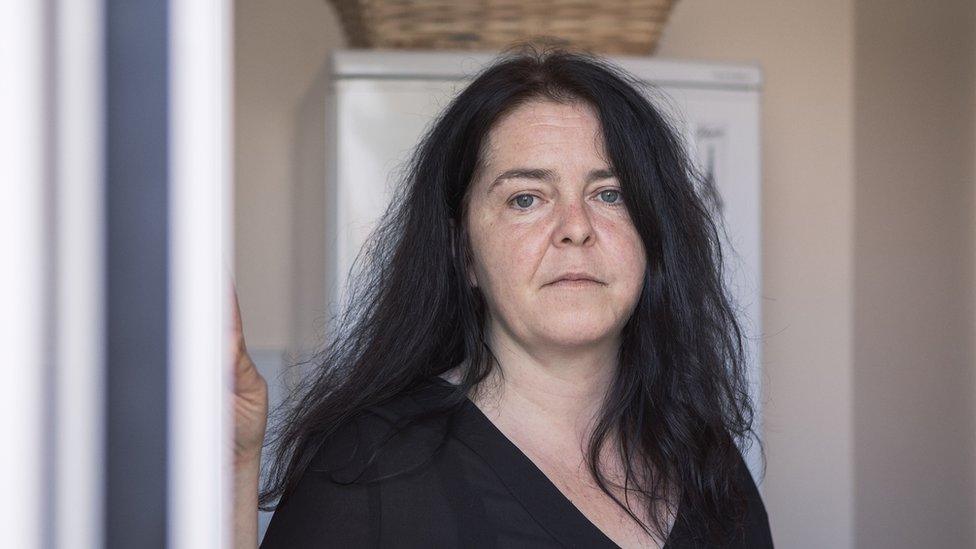How modern slavery victim went from homelessness to 'amazing' job
- Published
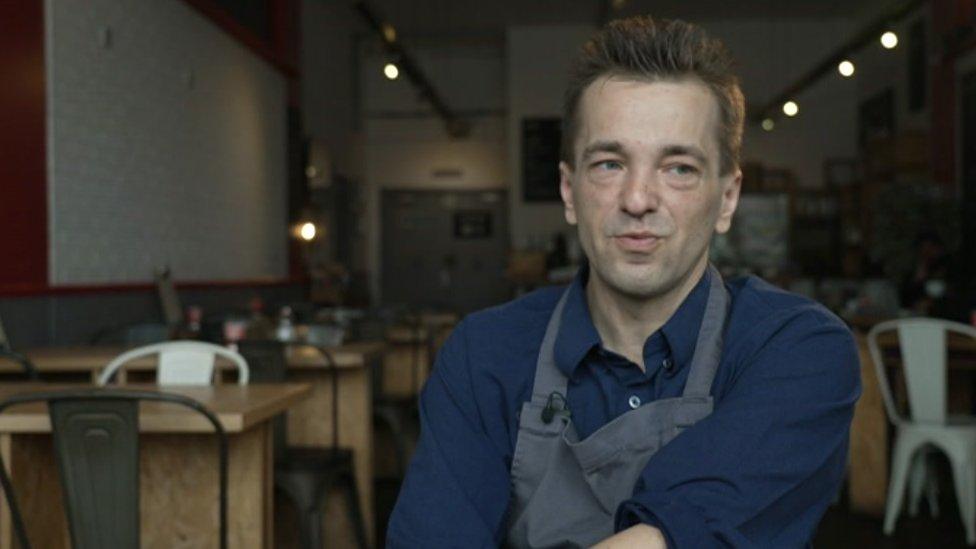
Will spent time sleeping in stairwells, a tent and was a victim of modern slavery
Will spent years being homeless and further time as a victim of modern slavery. But since teaming up with a Birmingham charity, he has a job and a safe place to live.
The now 38-year-old came to Birmingham from Poland 17 years ago.
He wanted to make use of his good English and move to a country which he felt had better opportunities than his home.
After getting a job with a building firm he found a place to live.
But, after a few months, a family bereavement - his sister was killed in an accident - combined with a housemate who he said did not pay his share of the bills led to him becoming depressed and evicted.
He became homeless, spending nights at the coach station in Digbeth and days in the library.
Eventually, he was introduced to Sifa Fireside, a charity which runs support services for homeless people and others who want to rebuild their lives.
He began to sell the Big Issue and, thanks to moving onto other jobs and the charity's support, remained off the streets for seven years.
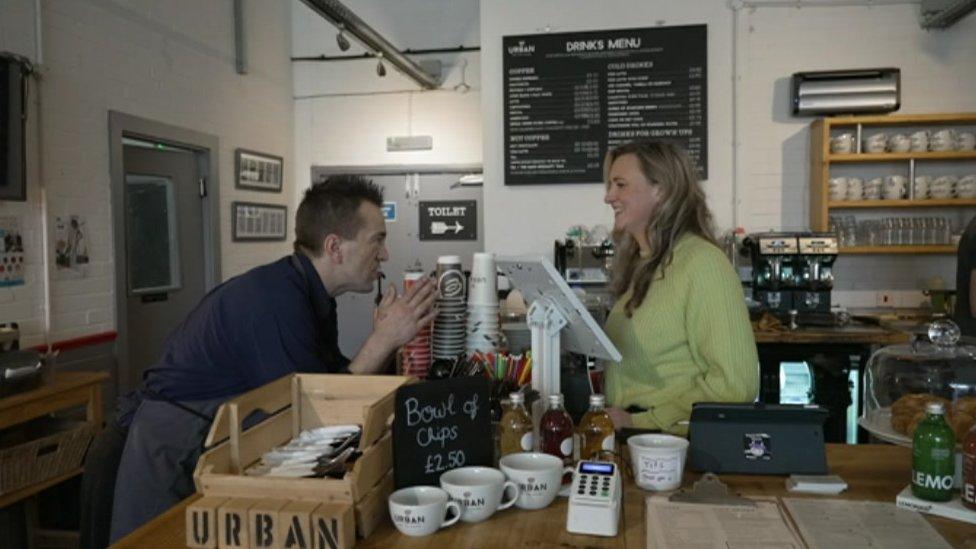
Will began as a pot washer. He is now a kitchen manager
He later got employment in a warehouse where he was eventually made team leader. However, he said he had lost the job when two people he considered friends, and who he had got jobs at the factory, began stealing from it. He could not prove he was not involved.
"As a thank you for getting my friends a job, I lost mine," he said.
Later, after nursing what he described as a mild case of depression, he found work in a factory in Walsall and moved in with a couple he met there. That is when his situation took a turn for the worse.
"They asked me if I could lend them some money because of housing benefit issues or something, I had no issue with that. They offered me a lovely meal as a thank you. And that's the end of that positive story.
"They poisoned me, then took all my money off me, took my ID off me and then basically kept me in forced labour for close to two years."
The poison made him sick to his stomach, he said, for the next week and left him unable to leave his room. When he did, his passport, wallet, bank cards and money had gone and he ended up depending on them for everything.
His food was rationed, he could not leave his room apart from to go shopping for them or translate anything and clean for them. He was stopped from working.
"Not exactly pleasant people," he said.
"I tried escaping a couple of times, I lost a couple of teeth because of that. I was walking from Bloxwich towards Walsall, a car pulled up and I was knocked to the floor and ended up back at home sweet home."
He felt he could not get help as he did not have any address or paperwork to prove who he was.
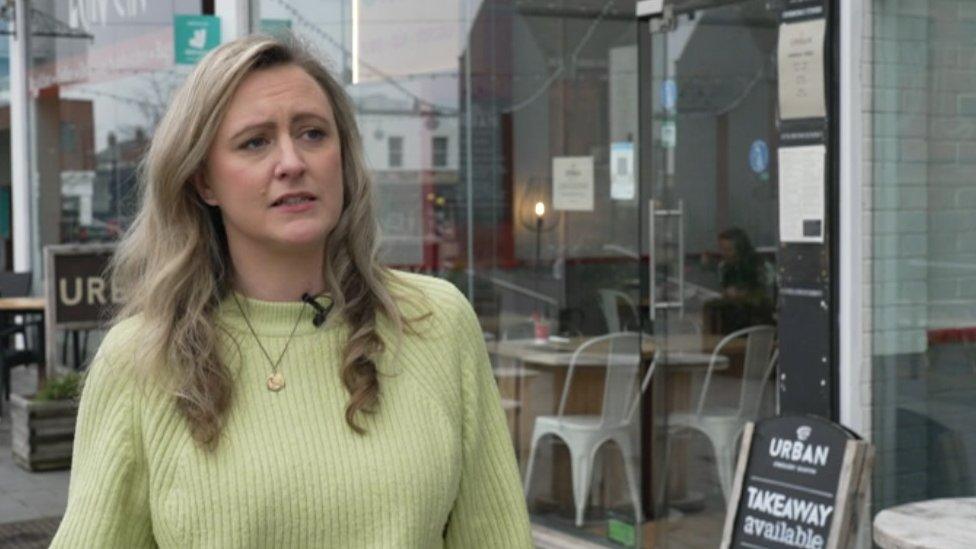
Staff at Urban have been enthusiastic about a scheme to help formerly homeless people into work, managing director Hannah Wolsey says
The only thing he was allowed to keep was his library card, as it was not considered of value.
"Best thing I could do was borrow a few books from the library so at least I had something to read, one thing I could do for myself. I would read books all day while staying in bed because if I made a noise they got annoyed."
He got a food allowance of two loaves of bread, two packs of soft cheese and a pack of luncheon meat to last him a week.
"If I got lucky and found some pennies on the floor I would buy some cookies."
Sometimes the couple would go with him to the shops, sometimes not, but even if not he said they had so many friends around the town centre there were no opportunities to leave.
The couple were alcoholics, he said, which eventually helped him escape.
"They were horribly drunk one night to the point where I took advantage of it and escaped at three o'clock in the morning and literally walked from Walsall to Birmingham straight to Sifa Fireside.
"It was the best walk ever."

Building employability - Sifa Fireside
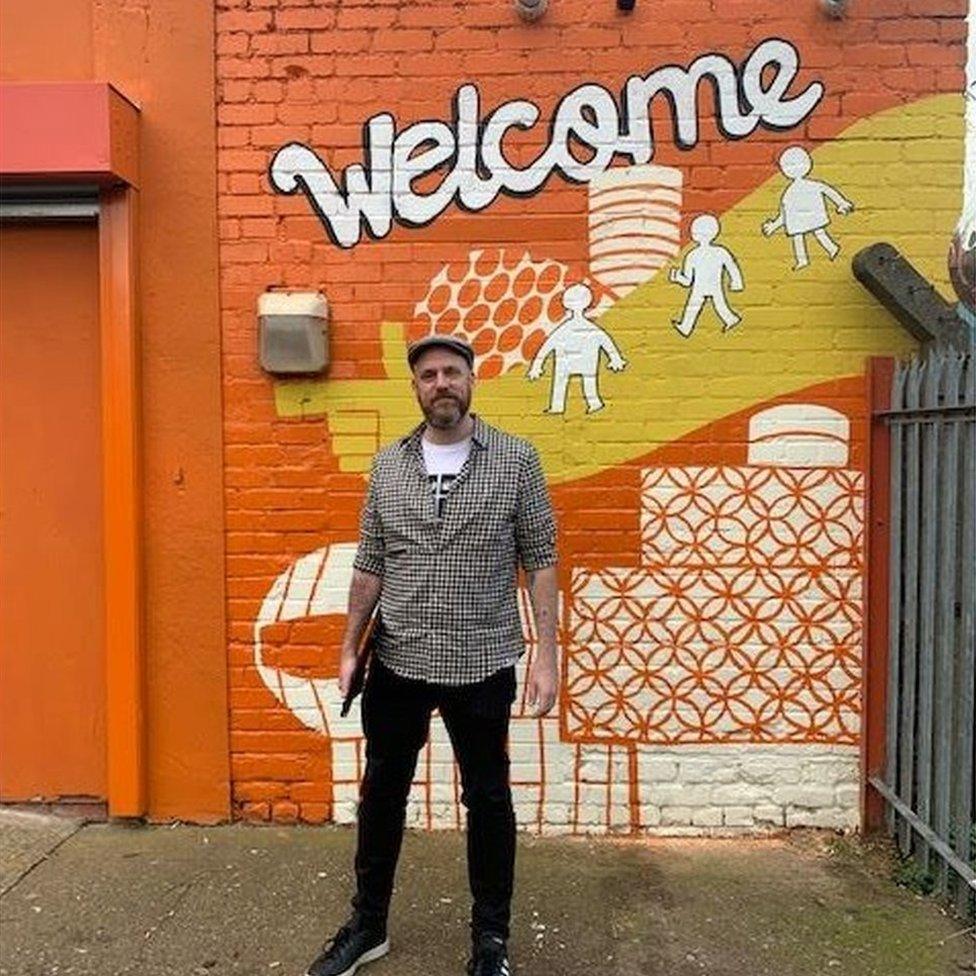
Robb Sheppard, at Sifa Fireside, helps run the Building Employability project supporting firms to get people into employment
As well as providing a drop-in centre where people can get hot food, a shower and access to a range of supporting services, Sifa staff also work to get their clients into employment.
Sifa is launching a scheme for corporate partners to get involved. The Building Employability, external project involves:
Identifying employment and training opportunities within an organisation
Training staff to recognise signs of hidden homelessness
Helping fund projects and organisations.

Will went back to selling the Big Issue and working as a volunteer at Sifa.
Other than raising various benefits issues with Sifa and Job Centre staff, he said he had not asked Sifa take any steps on his behalf.
"I had washed my hands of the entire matter," he said.
He was living in a tent in Aston when, through Sifa, came the opportunity to apply for a job at Birmingham's Urban Emporiums. He borrowed a suit from the charity's clothing cupboard to attend the interview.
"It was very funny when I stumbled out of my tent in my three-piece suit and shiny shoes," he said.
He was given a 15-hour-a-week job as a pot washer. Five years later he is kitchen manager at the firm's Jewellery Quarter site.
"He was the most smartly dressed applicant we had," said Hannah Wolsey, managing director of Urban Emporium,
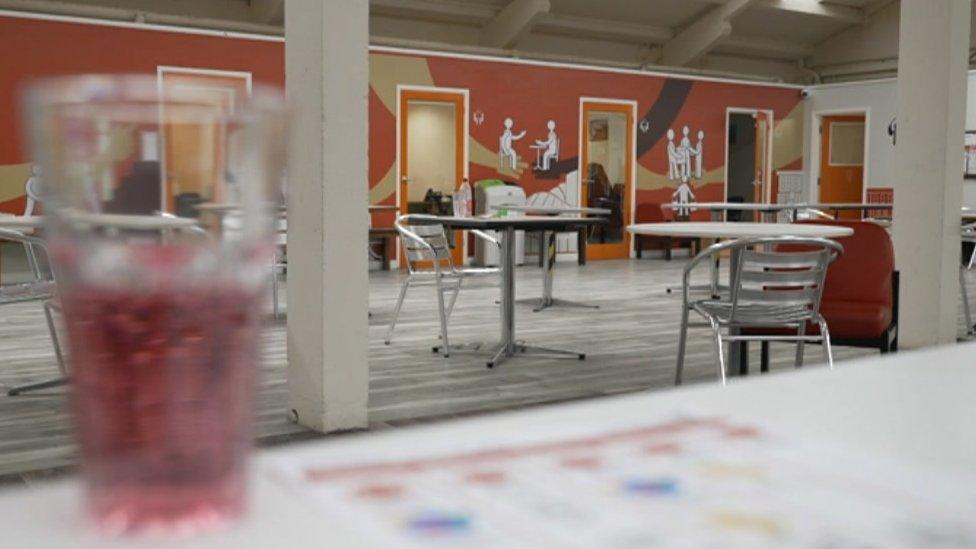
Sifa Fireside runs drop-in centres, provides hot food and showers and schemes to help homeless people
"I think most homeless people must have an incredible amount of resilience but it is about being ready and willing to do it [apply for a job]."
Urban has always seen itself as community based, taking part in various schemes to raise money for charity.
But, wanting to make more of an impact and also starting to notice a rise in homelessness in the city centre since it opened in 2009, it contacted Sifa to see what more it could do.
Straight away Urban realised its own staff loved the scheme, Ms Wolsey said, adding it had been great to give people opportunities - even if all it could offer was a three-month position.
"It gets people back into that reality of life and communicating with people outside of their own homeless networks. Any industry could do it," Ms Wolsey said.
She admits the scheme will not work for everyone and Urban has had a couple of people through the doors for whom it did not work out.
But for Will, going to Urban was an "honestly amazing experience". He did not have a bank account, so at first the company put his wages towards his accommodation.
"The amount of compassion they show to the staff, the pressure they put on themselves to talk to the staff and interact with them, to give them chances, opportunities, training. It was something completely different for me.
"Nobody can experience several years of homelessness without some kind of mental repercussions or some degree of mental scarring which will need to be addressed," he said.
"That's why these schemes are so essential. They address the monetary issues, such as the homelessness, and the wider issues."

Follow BBC West Midlands on Facebook, external, Twitter, external and Instagram, external. Send your story ideas to: newsonline.westmidlands@bbc.co.uk, external
Related topics
- Published2 April 2021
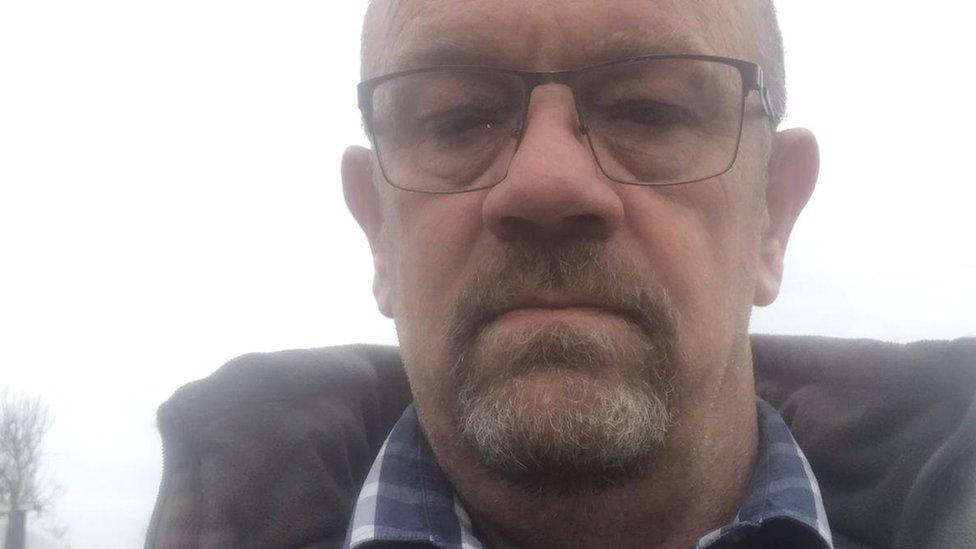
- Published23 July 2018
